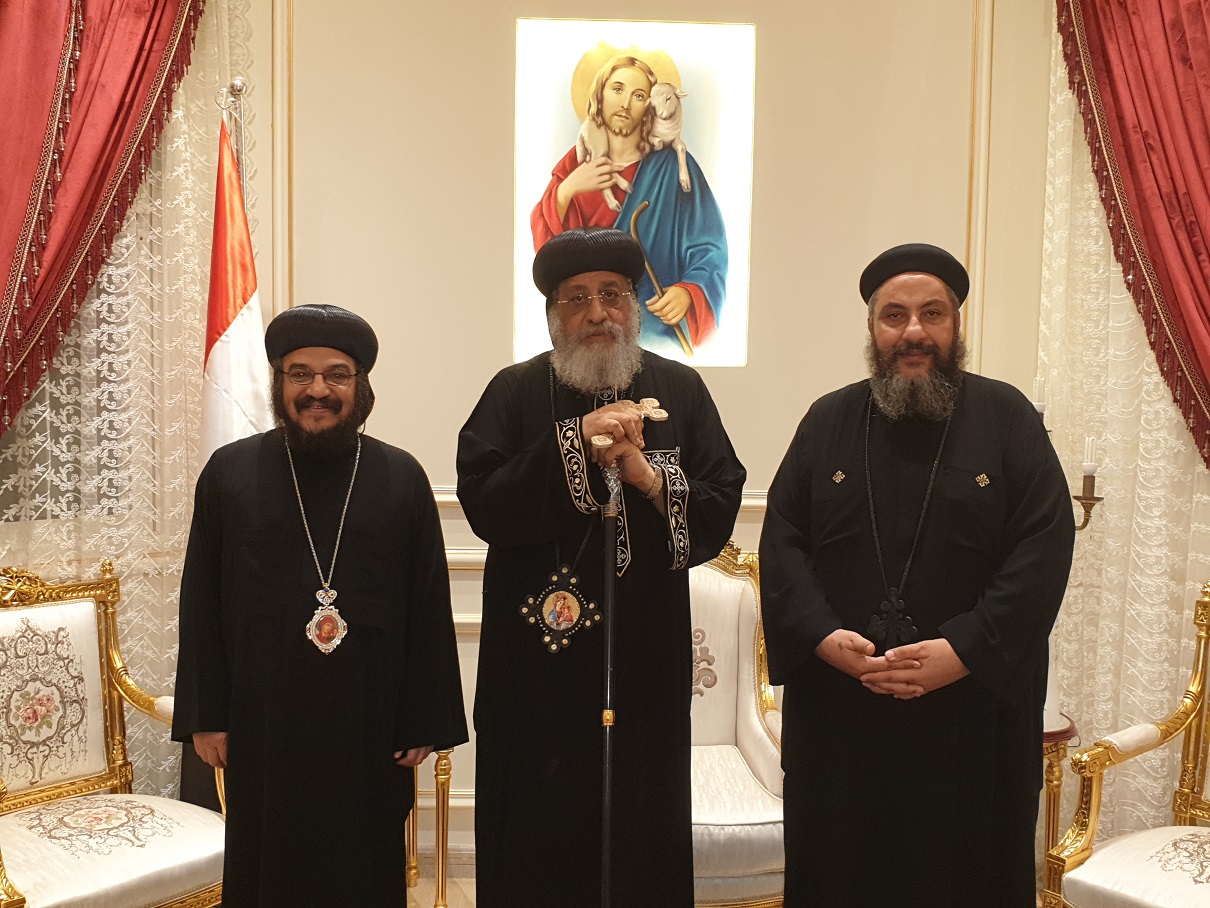




















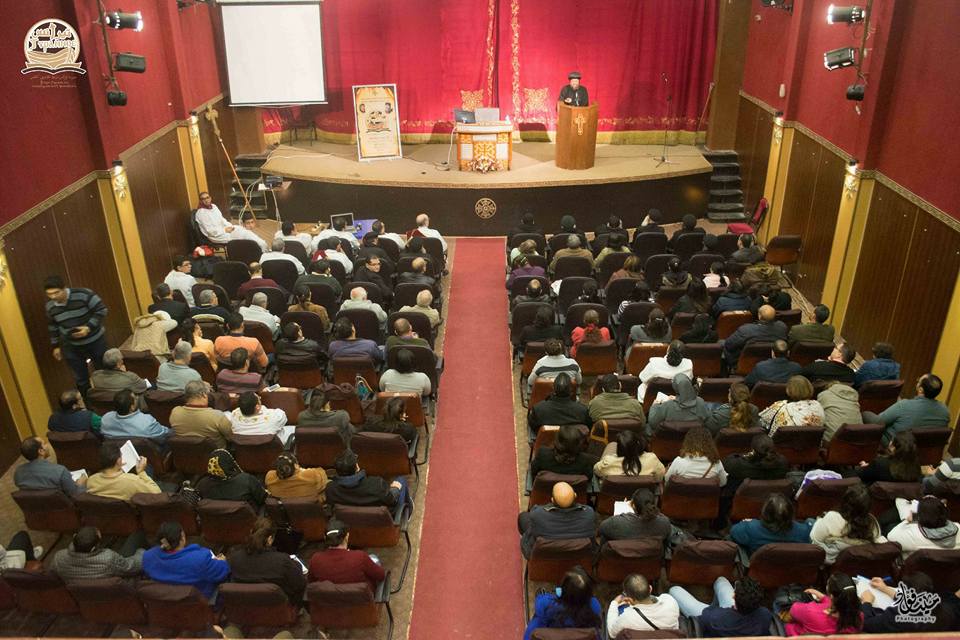
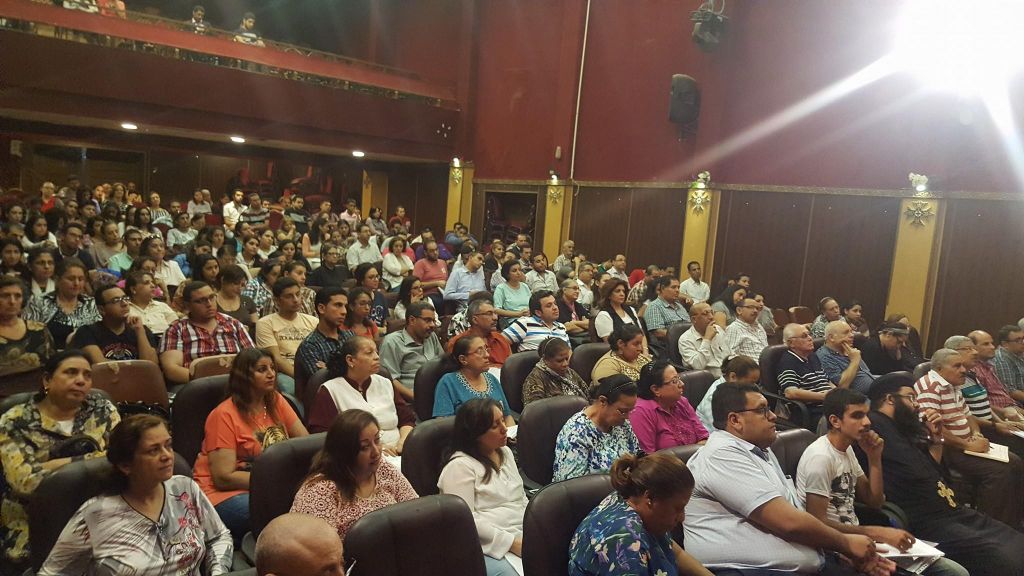
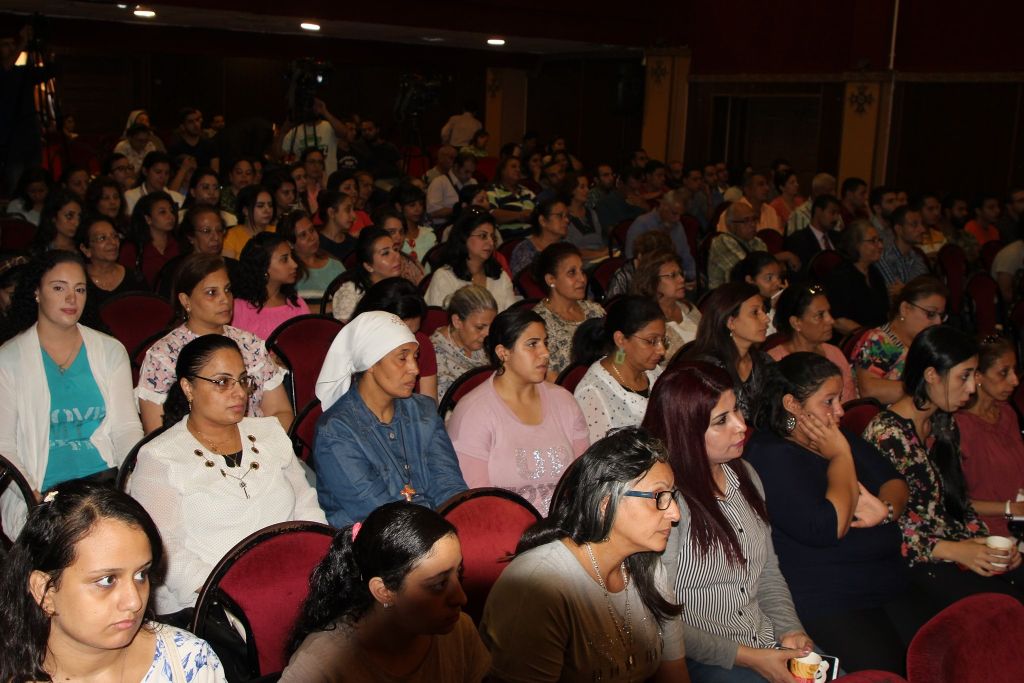
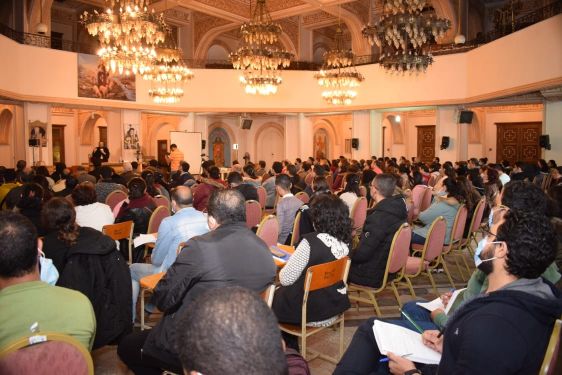
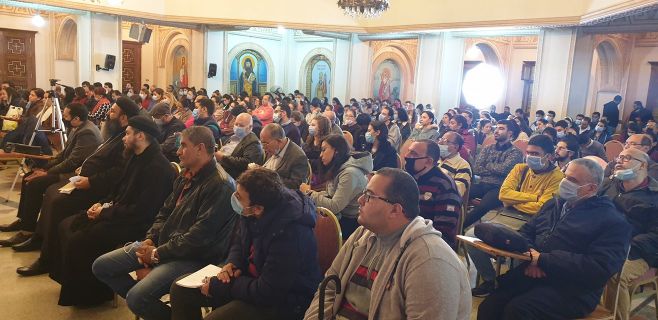
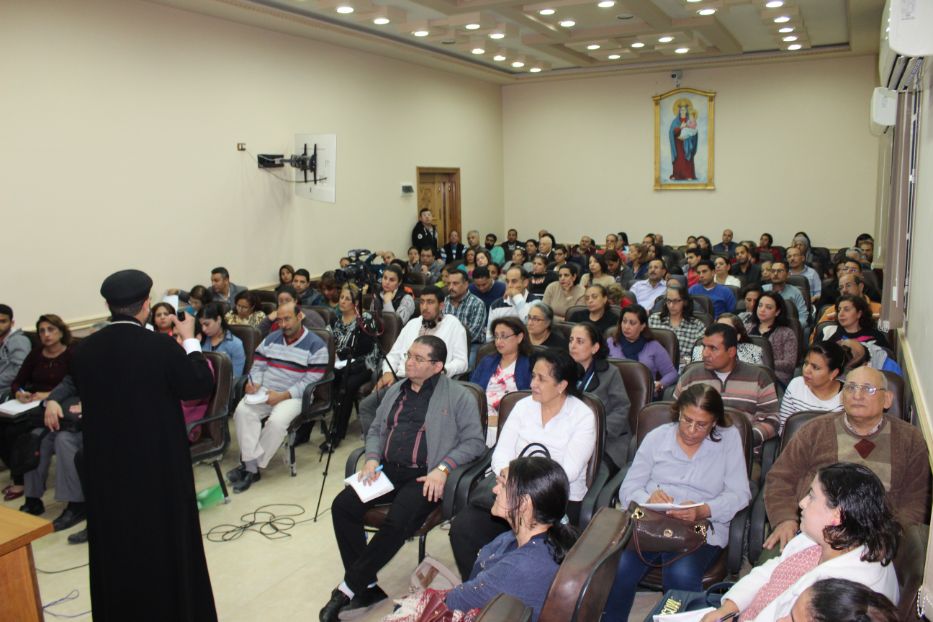
 History of the Seminary
History of the Seminary
 Tyrannus in Holy Scripture
Tyrannus in Holy Scripture
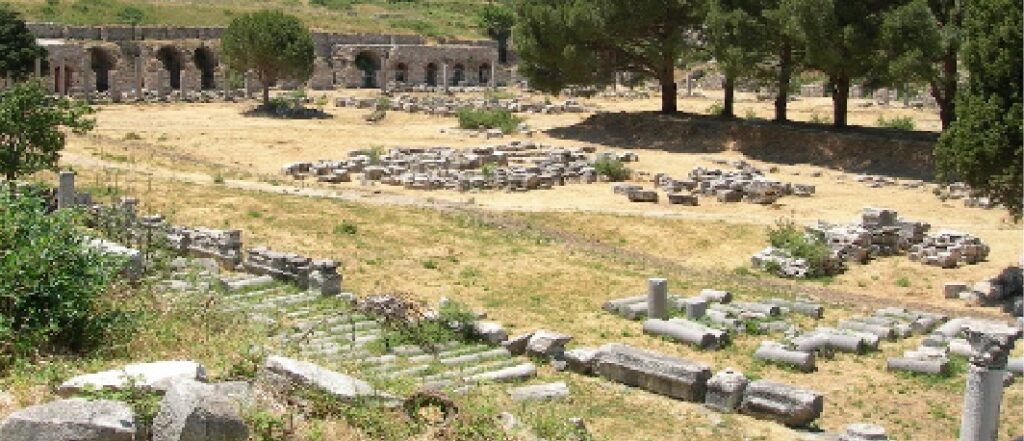
However, in light of the New Testament events, Tyrannus is the name of prince, a Greek rhetorician, in whose “school” at Ephesus St.Paul the apostle carried out most of his ministry, disputing and reasoning daily over the course of two years concerning the Gospel with those who came to him (Acts 19:9).
D Syriac that St.Paul taught at the school “from the 5th hour unto the 10th”, meaning eleven o’clock in the morning until four in the afternoon. This likely to have been the case because these were the hottest hours of the day when most people rested after the midday meal. So the apostle Paul sought to take advantage and utilise these hours. During these times, the hall would normally be vacant, and perhaps rent cheaper, (Tyrannus would normally teach in the cooler morning hours). The halls or rooms of the philosophers were called σχολαί among the later Greeks (Liddell and Scott,s.v.).
This schedule would allow Paul to work at his own trade during business hours (Acts 20:34;1 Cor 4:12). Then, instead of resting, he engaged in mission work and apologetics when those in trades and business were at leisure to hear him. As a result, “all the residents of Asia heard the word of the Lord, both Jews and Greeks” (Acts 19:10).
St.Paul repaired to this Tyrannus’ school after having been compelled to leave the Jewish synagogue (Ac 19:9), evidently as a means of gaining access to the Gentiles in addition to the Jews.
This seems to have been his normal procedure upon leaving or being expelled from the synagogue of any city. He normally used a large residence offered by one of his more prominent and wealthy disciples or rented an establishment whereby he could reason and persuade people, whether Jew or gentile, that Jesus is the Christ, the Savior of the world. In Philippi, Paul worked from Lydia’s home (Acts 16:14-15), and in Thessalonica it seems he operated from Jason’s home (Acts 17:5-9). In Athens he used the marketplace and the Areopagus, probably because the few believers there may not have owned a suitable place for public discussion, or if they did, didn’t offer it to Paul for the sake of the Gospel. However, when he arrived at Corinth, he used the residence of Justus (Acts 18:4-7), which seems to have had a common wall with the local synagogue there.
These places were used by the apostle to discuss what he wished especially those thing pertaining to the Scriptures in contrast to the strict limitations and restrictions which he faces in the synagogue.
As Tyrannus himself, some scholars have supposed that he was a Jewish rabbi, and that his “school” was a private synagogue. Others presume that he was a Greek, and a public teacher of philosophy or rhetoric.
 Educational effectiveness
Educational effectiveness

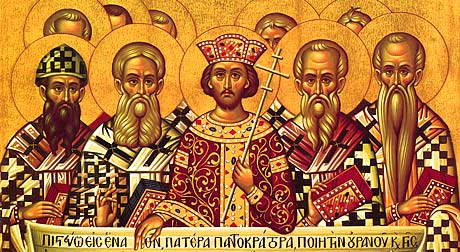

For the first time in this generation of Alexandrian servants, proper theological terminology became widespread when referring to doctrines, citing patristic references or discussing matters of theology. Writings of the fathers were ventured once again, developing great familiarity was made with our rich heritage. As they became increasingly more confident with theology, they started addressing more complex spiritual and theological topics and including references of a more academic/scholastic nature in their preaching. Comparisons between pieces that they’d written (before and after), displayed such contrasts in their ability to express Orthodox thought. Likewise, huge improvements were made in the practical skills especially in their oration skills. These transitions began a contagious loop of transmitting their passion and knowledge, spreading theological awareness, and directing their fellow servants to more profound (patristic) literature. Servants began to notice an upgrade in their peers’ capabilities, thought and in the enhanced effectiveness of their ministry. A prime example to illustrate this is when one of the student’s son passed away in 2017. Instead of the custom tradition of what Copts do in Egypt for the 40th day memorial Liturgy, the man distributed in excess of three hundred copies of “The homilies of St.Macarius the great”!
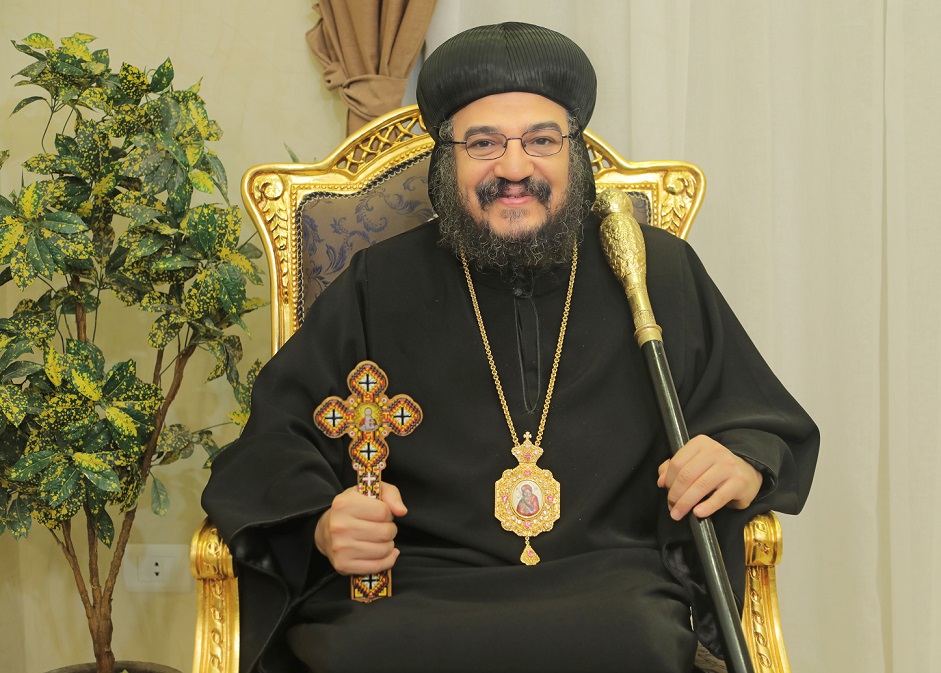
 The Chancellor
The Chancellor
Bishop Pavly
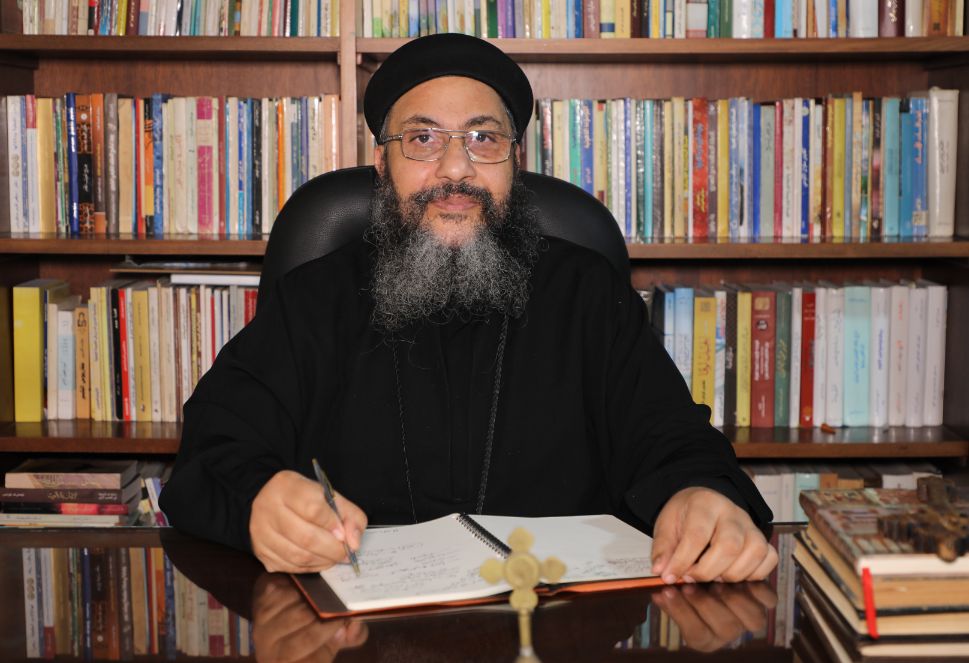
 The Dean
The Dean
Fr. Athanasius Fahmy George,
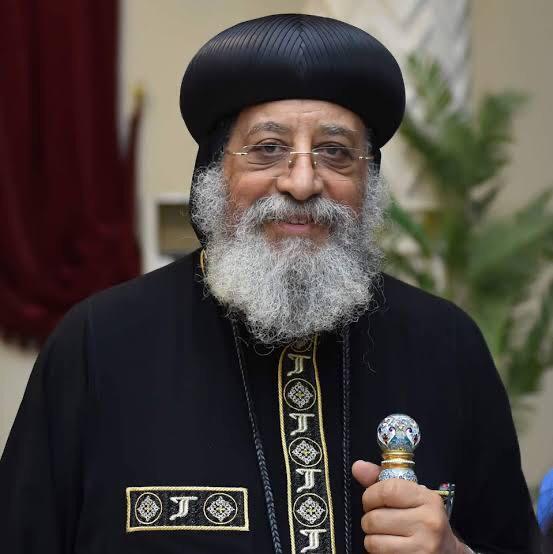
 President
President
The seminary is based in city of Alexandria, the birthplace of the see of St.Mark and is headed under the auspices of HH Pope Tawadros II – Pope of Alexandria and Patriarch of the see of St.Mark Having grown up in Damanhour, His Holiness has completed degrees in Pharmacy, a profession he is passionate about to this day. His Holiness was a distinguished servant in the city, eventually becoming the head servant at his Church. Shortly after his ordination as a monk (Fr.Theodore), at the monastery of St.Bishoy, Scetis in 1988, His Holiness was called to serve in his hometown in the diocese of Beheira, for several years before becoming consecrated as an auxiliary bishop (Bishop Tawadros) to assist HE Metropolitan Pachomius in 1997. During the years of his Bishopric, he was best known for his diligent work in fields such as child development, designing several Sunday-school curriculums for the age group himself in addition to being an active member of the Childhood committee in the Coptic Holy Synod and a prolific writer on the topic. He was ordained as Pope of Alexandria and Patriarch of the see of Saint Mark on the 9th of Hatour 1729 A.M. (18th of November 2012). One of His Holiness’ all-time favourite hobbies is reading, which he does multilingually. His Holiness has written a number of books, most prominently introductory works on Scripture, the Creed and short-stories. His Holiness earned a Bachelor’s of theological studies in 1983 and has had some experience teaching “New Testament” at Coptic seminaries.
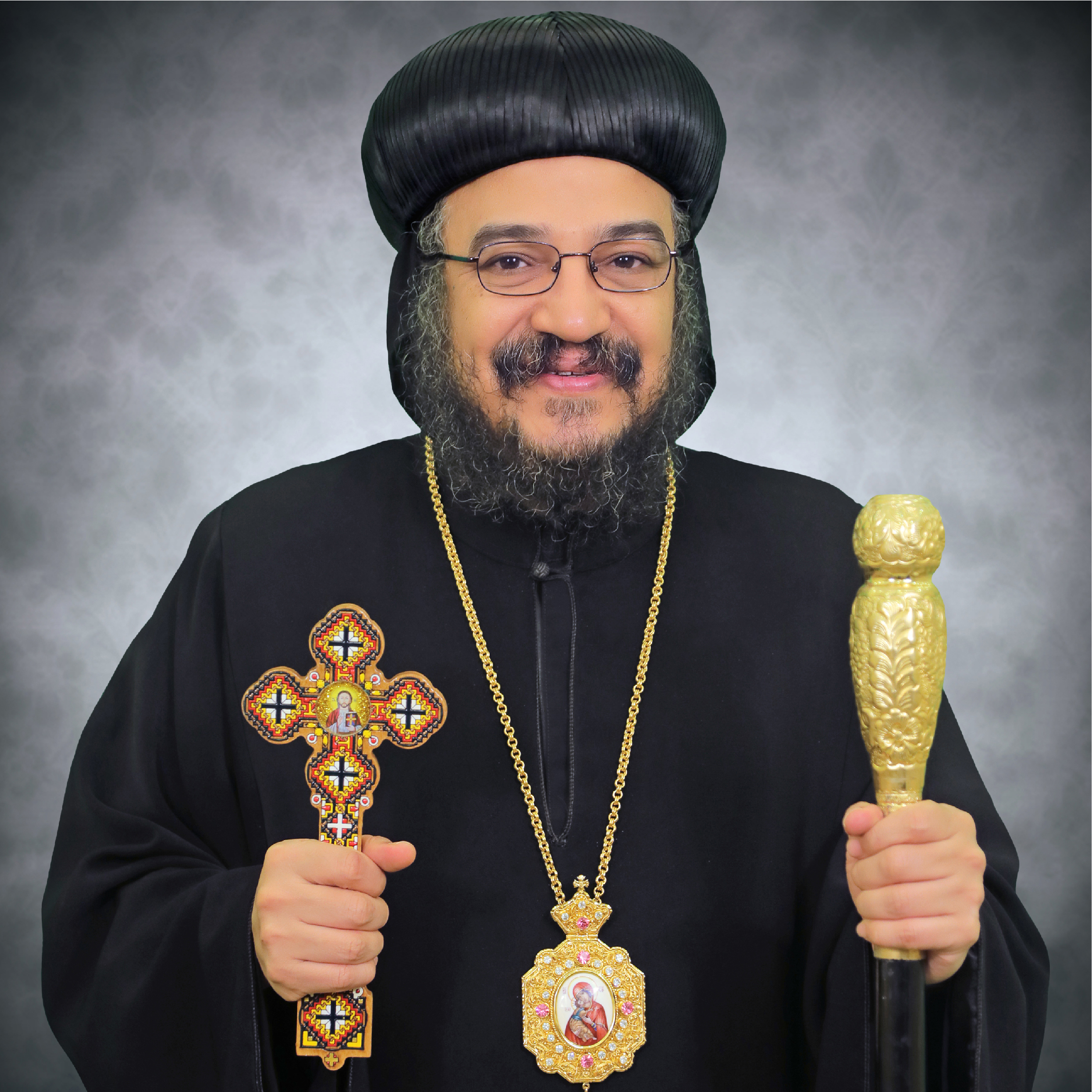
 Chancellor
Chancellor
All spiritual, ecclesial and educational activities and functions are overlooked by HG Bishop Pavly – auxiliary bishop of the Montaza province in Alexandria and the youth of the city.
Holding a degree in computer engineering, His Grace worked in several multinational companies in addition to being gifted in youth ministry, preaching and deacon chorus mentoring prior to his consecration as full-time servant. He would later be ordained as a celibate priest by the late Anba Makari of thrice blessed memory, martyr bishop of Sinai, serving as his disciple, eventually becoming vicar of the diocese. His Grace was ordained as a bishop on June 1st 2014, serving briefly in Cairo before assuming his post in Alexandria. Today His Grace has transformed the districts in which he serves spiritually and socially through his Christian humanitarian work, in addition to having become a widely known Biblical preacher whose sermons have become popular with the international Arabic audience.
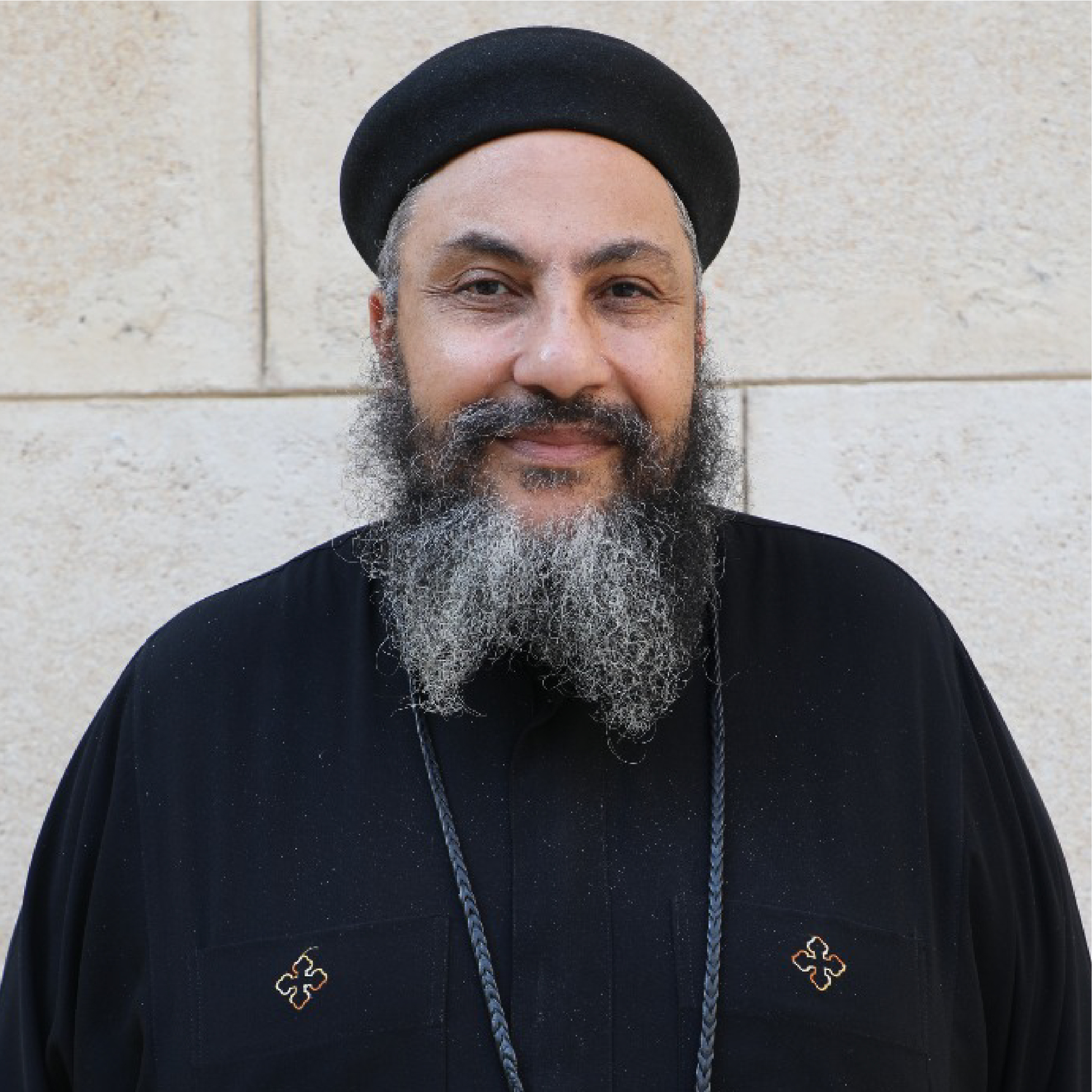
 Dean
Dean
Having grown up in St.Mary’s Church, Moharem Bey in Alexandria, the birthplace and melting pot of the Alexandrian Sunday-school movement, Orthodox Spirituality was deeply rooted in Fr.Athanasius from the pioneers in his Church from scholars in theology to Coptic language to experts in Holy Scriptures and masters of Coptic hymnology. His passion for the fathers was inspired by his spiritual fathers the late Fr.Bishoy Kamel and Fr.Tadros Yacoub Malaty and the Head servant at St.Mary’s Church, Dr.Youssef Habib (Abouna Bishoy and Abouna Tadros’ mentor). With the love of Sunday-school ministry filling his heart, he decided to become a full-time servant in 1987, residing at the Patriarchate. In 1989, he was appointed Head-servant of Sunday-school and youth ministry in Alexandria, becoming appointed as the youngest member of the Higher Committee of Sunday school education in the Coptic Church in history the following year. He also participated in many ecumenical functions in connection with both the Middle East Council of Churches and the World Council of Churches, having represented the Coptic Church and HH Pope Shenouda III on many different occasions. In 1997 he was ordained as a priest to serve in the diocese of Ireland, Scotland and North-East England, becoming vicar of the diocese after three years and a hegumen in 2005. In September 2015, according to his wish, he moved back to serve in Alexandria at St.Mina’s Church in Fleming. In terms of education, Fr.Athanasius holds a degree in Business Management, a Master’s degree in Christian education and psychology from the Higher institute of Coptic studies and has a doctoral degree in Patristic theology from the University of Chalkida (Ecumenical Patriarchate of Constantinople), in addition to some other studies at the University of Oxford and Balamand. However, he is best known for his Arabic Patristic series Ichthus (over 80 books).
- Fr.Antonios Fahmy
- Fr.Youssef Dawoud (Registrar)
- Fr.Youssab Magdy
- Fr.Boules Samuel
- Fr.Mina Adib
- Fr.Abaskhairon Aziz
- Fr.Maurice Habashy
- Mr.George Michel Nawar
- Mr.Ehab Azer
- Mr.Magdy Awad
- Dr.Sherif Gayed (USA)
- Judge Usama Nabil
- Mr.Michael Makar
- Dr.Sameh Jimy
- Mr.Beshoy Alfy
- Mr.Milad Meawad
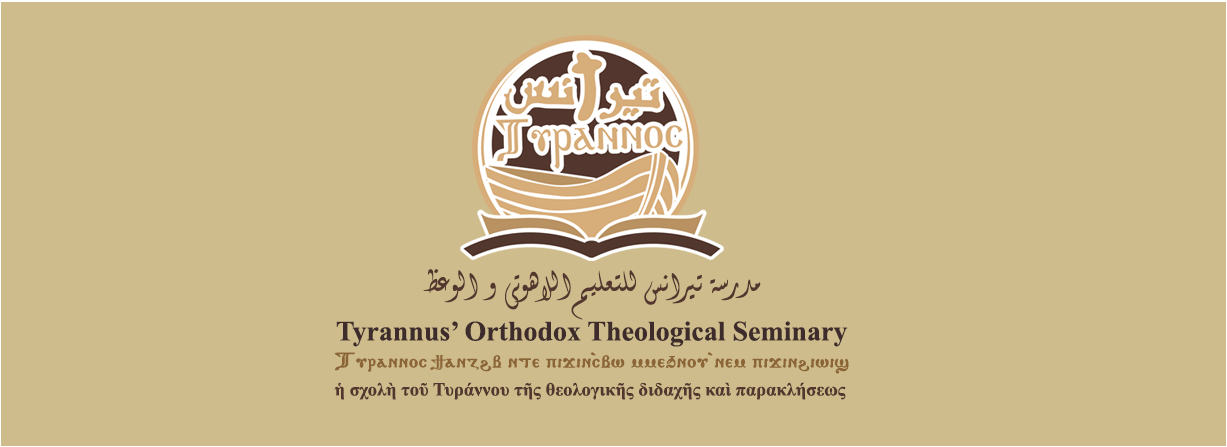
 Tuition style
Tuition style
 How you're taught
How you're taught
 Teaching methods
Teaching methods
Lectures act as a point of departure in students’ own research, forming the basis of the points which the tutorials will then address. These sessions are highly concentrated in nature, lasting around 75-90 minutes.
Many lecturers are leading academics in the Church, meaning that lectures often present to students the latest research work done on certain topics.
While the lecture is delivered to entire year groups (anywhere up to several hundred students), the tutorials on campus are usually held for groups as small as 10 students up to a maximum of 40. These sessions are designed to deal with the specifics and details of the courses. The volume and pace are more relaxed than the lectures as our teaching assistants focus on dissecting, analysing and synthesising. Students are exposed to the subject in an interactive manner that encourages them to actively participate in group discussions. Weekly tasks are assigned after each tutorial, varied in nature.
This element of tuition involves hands-on application as students are guided through practical coursework.
These classes are only held in courses with practical components such Homiletics, Coptic Iconography/art units and our unit on Coptic hymnology.
Students research topics by completing certain reading assignments that are then complimented with their own research work and findings. Guided sessions are held weekly to discuss the passages that they read and new findings/conclusions that they draw from their further investigation of the topic. Written work inspired by their research is corrected and feedback is provided.
Grading system
* It is permissible for students who underachieve in a course (score below a “C minus”) to request to sit the college’s make-up exam which takes place about two weeks after the results come out. However, this exam is only marked out of 70% of the total points allotted for the paper
Mission
From a growing reality of spiritual deterioration and detachment from Oriental patristic identity, placing Copts both inside and out of Egypt in a state of flux driven by invisible forces began the mission of the seminary.
What shapes everything we do at Tyrannus is the idea of fashioning the ideal 21st century Orthodox Christian through an intersection of antiquity and modernity and a synthesis of personal encounter with the Holy Trinity and practical vision for ministry in contemporary times.
This is achieved through a stimulating and enriching learning system that is anchored in Holy Scripture and the Fathers of the Church while being relevant to world in which we live in, for the Glory of God and the flourishing of His Church.

Vision
With the grace of God, we aspire to be a beacon of Orthodoxy whose light emanates from the city of Alexandria, shining to all the ends of the world through distinguished theological education.

Values

Objectives

